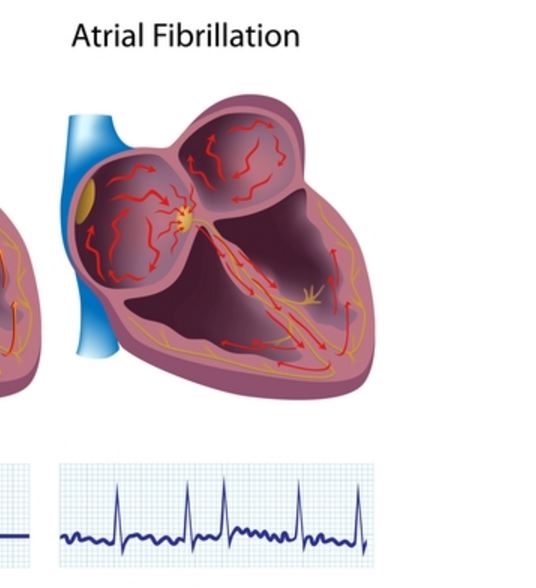What is Atrial Fibrillation?
Atrial fibrillation is an irregular pulse rate that indicates you have an abnormal heart rhythm. Atrial fibrillation (AF or AFIB) is one of the main forms of abnormal heart rhythm and a main cause of stroke.
 Normally, the heart’s natural pacemaker sends regular electrical impulses. AF occurs when the electrical impulses fire off from different locations at the top chambers of the heart (the atria) in an abnormal way.
Normally, the heart’s natural pacemaker sends regular electrical impulses. AF occurs when the electrical impulses fire off from different locations at the top chambers of the heart (the atria) in an abnormal way.
People who suffer from atrial fibrillation have an irregular and at times, a fast pulse. You can check to see if you have AFIB by simply feeling your pulse and checking its rate.
1AFIB Causes?

Atrial Fibrillation causes can be several different reasons including:
- heart valve disease,
- overactive thyroid gland (thyrotoxicosis),
- excess alcohol consumption
- high blood pressure
Other AFIB triggers include:
Illness and Fatigue
Physical illness, a recent surgery and sleep deprivation can trigger AFIB. When you body is not operating properly, you are likely to suffer from physical stress. Stress can cause abnormal electrical activity in your heart. Eating a balanced diet and getting enough sleep is recommended.
Emotions

When it comes to bodily functions, emotions play a big role. When you are upset or sad, you are likely to lose your appetite. Being stressed causes tight muscles and soreness. Anxiety, fright and extreme happiness can cause the heart to race faster or skip a bit.
Hormones

According to medical experts, irregular heartbeat increases in many women suffering from menstruation problems. Women that are peri-menopausal are likely to have an increase in AFIB.






